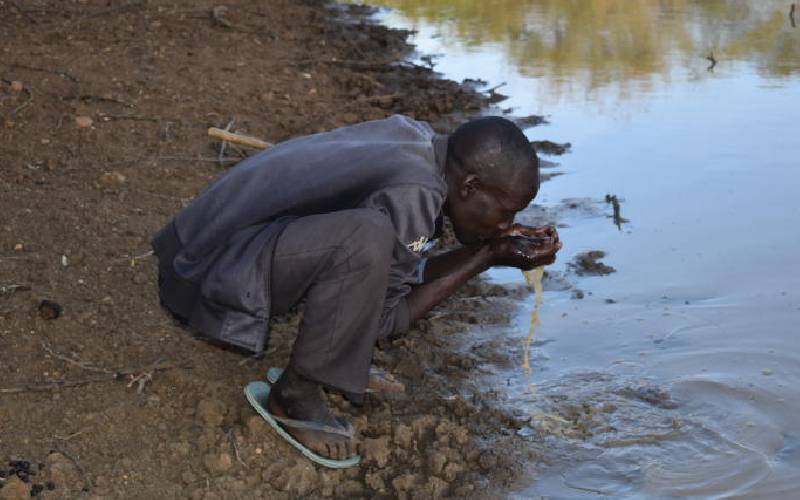×
The Standard e-Paper
Smart Minds Choose Us

Joseph Lokapel, quenching thirst from Mworwongar water pan in Kacheliba constituency. Due to ongoing drought, livestock and locals depend on this lone water pan for water. [Irissheel Shanzu, Standard]
Water shortage and a lack of pasture have forced a majority of livestock keepers in West Pokot to move to Uganda.